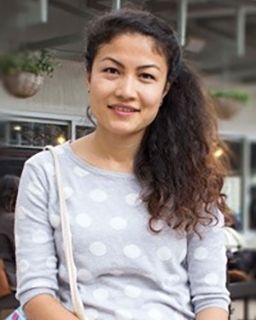Sumati Maharjan
People have questioned my parents’ decisions to empower me and let me lead an independent life. But my parents have learned to ignore it.
Sumati Maharjan is one of the lucky ones. Born in Nepal, she avoided what she describes as “oppression under structures stemming from the patriarchy” that affected her family members and other women from her community.
“The general mentality in the Nepalese community – especially in my community – is that we should send girls to school, they should get educated, and get a job if they can,” Sumati says.
“But in the end, they have to get married and go to their husband's house, and for most of them that's where their life will be.”
Sumati did get educated, doing a degree in media studies. She also got a job, working for magazines in Nepal, where she saw more of the dynamics of gender stereotypes and objectification of women.
Then her path diverged from the expected. With the support of her parents, Sumati came to Australia.
“People have questioned my parents’ decisions to empower me and let me lead an independent life,” Sumati says. “But my parents have learned to ignore it.
“They are the best parents I could have ever asked for.”
In Adelaide, Sumati started working with a non-governmental organisation (NGO) with young people who’d arrived on humanitarian visas.
“Learning about their journey and their stories and understanding how difficult it is, especially for young girls and women, to have come from such difficult scenarios where they have fled persecution and violence and had come to Australia – it really got me interested in learning more about gender perspectives in the context of development, conflict and humanitarian crisis,” she says.
That interest led Sumati to quit her job and come to the ANU, to pursue a Master of Applied Anthropology and Participatory Development.
“It has a perfect mix of coursework, research and on-field experiences,” Sumati says.
“At the beginning I was concerned because I had never stayed unemployed, and undertaking full- time studies meant that either I would do a casual job or I would just be unemployed.
“But I'm really happy with my decision to just focus on my studies. It has paid me really well in terms of the friendships that I've gained, the relationships that I've made, and more importantly the knowledge and the experiences that I've gained.”
Sumati isn’t sure where she’ll be in five to ten years’ time, but she knows that she wants to contribute to change in Australia, Nepal and possibly other developing countries.
“I've seen the issues, I've seen the difficulties. It's not fair to those women that they have to live such a hard life when people like me have the opportunity to prosper in Australia and get all the knowledge and experience and guidance from really important and inspiring people,” she says.
“If I can't use that knowledge and experience, then I don't think the value I've gained would be that great.”
She’s making her way to that future deliberately and in a considered manner. Having landed a place in the Australian Government’s Department of Social Services’ graduate program, she hopes to work on social development policies with a focus on humanitarian settlement policy and gender violence policy.
“I'm still learning,” Sumati says.
“Obviously I’ve got an awesome degree on my resume now. But, I think I need to get a lot of real life experience before I can say, ‘This is what I'm going to do, and it’s going to make a difference’.”
With one foot out the door, Sumati reflects on her time at ANU.
“Besides studies, I was involved in many extra-curricular activities and that made my experience at ANU really fun,” she says.
“I think I'll miss it. I'm already missing it.”

Degree
Master of Applied Anthropology and Participatory Development
Learn more about Sumati Maharjan's degree: